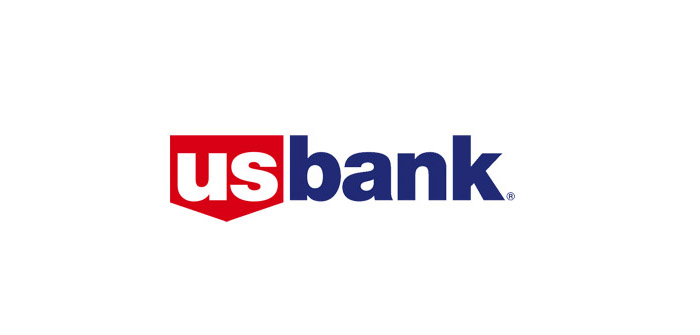Fraud is a $10 billion illegal business, according to data from the Federal Trade Commission (FTC). The data, released earlier this year, shows fraud losses reached a new high in 2023 and marked a 14% growth in losses when compared to 2022.
With $10 billion on the line for families across the United States, what can Oregonians do to stay vigilant against scams? Seth Tindall, the Branch Banking market leader for Oregon at U.S. Bank, explains what individuals can do to protect themselves and their loved ones.
Q. What should people look out for so they don’t become a victim of a scam?
A: It all comes down to your information. Scammers want you to divulge sensitive information for their benefit. Say you get a call from someone who claims to be from your bank or from a government organization and they request bank account numbers, credit card information, your Social Security number or passwords over the phone — take time to analyze the situation.
For instance, at U.S. Bank, we won’t ask you to give us your personal information unless you’ve initiated a request. If you receive a call asking for that information, instead of sharing it, take notes and call your bank directly using a phone number from a known, trustworthy source (like the number on your bank’s website or the back of your credit card).
Q. Can you talk about identity theft and what to look out for?
A: Identity theft is a crime that happens when someone — a stranger or a person you know — uses your personal information without permission. Typically, it’s for their financial benefit. Identity theft can happen multiple ways, from data breaches and mail theft to malware on your computer and credit card skimmers installed by bad actors taking advantage of legitimate businesses.
There are a few common signs of identity theft that should raise red flags. These can include unauthorized credit card charges or deductions from your checking account. Debt collection calls about charges you’ve never made could also occur. You might also receive unsolicited texts from your bank or credit union, such as the passcode for dual authentication. Remember, you should not share your passcodes with anyone.
Q. Financial exploitation of elders is also a concern. What can families do to safeguard their loved ones from financial abuse?
A: Elder fraud is an increasing problem given the growing population of Americans 65 and older. Any of us can fall victim to fraudulent schemes and scams, but elderly individuals are frequently the target of such actions and often also the most vulnerable. Reports estimate that financial fraud affecting older adults totals $3 billion per year and the problem appears to be growing.
People can be defrauded by strangers, or quite often by family members or friends who should be looking out for their interests. Common types of elder scams include:
- Imposter scams: Like with people pretending to be a legitimate business or a government official, imposter scams targeting older people can also include people pretending to be a grandchild or calling on behalf of a grandchild.
- Online shopping scams: These are fake websites or social media platforms designed to look like a legitimate online retail site. They may sell inferior products that are not the genuine merchandise they claim to represent.
- Fake prizes, sweepstakes and lottery scams: Individuals are notified that they have won a prize but are asked to pay money or provide account information in order to collect the prize.
To help limit financial abuse, elders should consider naming a financial power of attorney or successor trustee to make financial decisions if the time comes when one is unable to do so.
Another item to weigh is authorizing a trusted contact who can be reached by banks, investment firms and other financial institutions if suspicious activity is detected. The designated individual can be given “view-only” access to the account to provide additional oversight. Lastly, advise older family members to consult with a trusted attorney, advisor or family member before signing any documents.
Q. How can people be proactive in protecting themselves from scammers or identity theft?
A: It’s important to take steps to protect yourself or loved ones from financial fraud. Generally, these steps aren’t complicated or cost any additional money.
- Consider arranging for a credit monitoring service to provide credit score monitoring.
- Shred all documents with personal information, such as bank statements and tax forms.
- Never share passwords to online accounts or other sensitive information such as Social Security numbers with anyone in any way, especially over the phone or online.
Again, I cannot stress enough, do not respond to unsolicited requests. If you receive a call, email or text from an individual or business asking for payment and you didn’t contact them first, don’t respond. Instead, call the individual or business directly, using a verified contact number, to inquire about your account and any potential security issues.
Q. What should a person do if they are a victim of fraud or identity theft?
A: No prevention plan will ever be 100% foolproof, so if you do become a victim of fraud, know that there are many resources out there.
We’ve provided a step-by-step breakdown of what you should do immediately after discovering you are a victim of identity theft or other types of fraud. This includes calling your bank, credit agency, and reaching out to the FTC. If you or a loved one is a victim of elder fraud, you can learn more about next steps here, and contact the National Elder Fraud Hotline with the U.S. Department of Justice at 833-FRAUD-11 to help.
About Seth Tindall:
Tindall is the branch banking market leader for Oregon. In this role, he leads branch and small business banking employees for more than 140 branch locations across Oregon and Southwest Washington. Seth joined U.S. Bank in 2010, and over the last 14 years he has held various roles with increasing responsibility including personal banker, business banking sales manager, branch manager and district manager.





